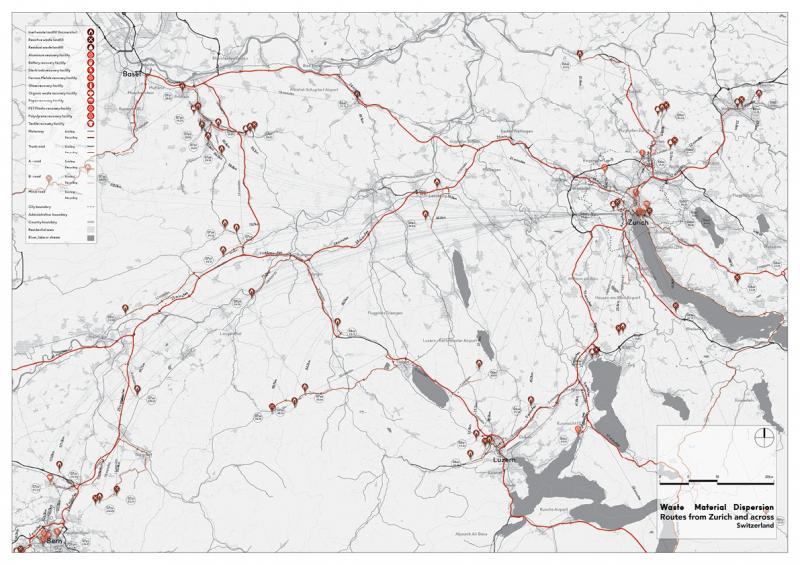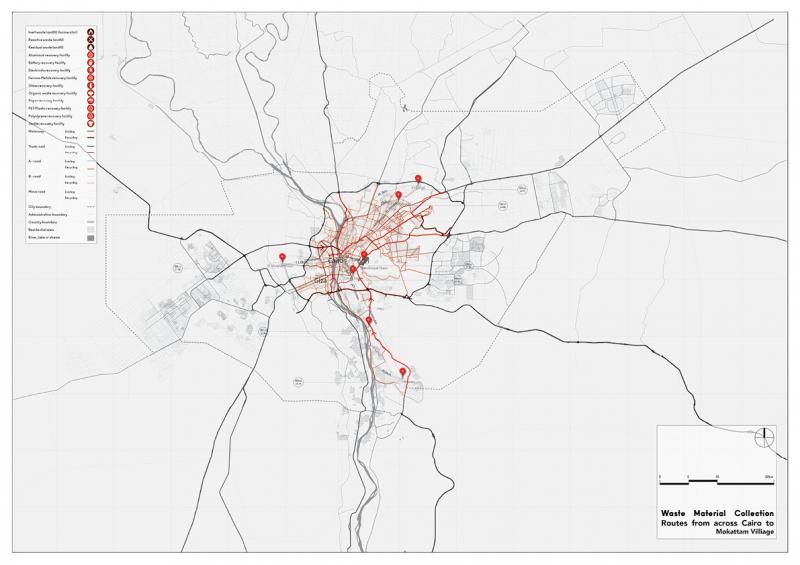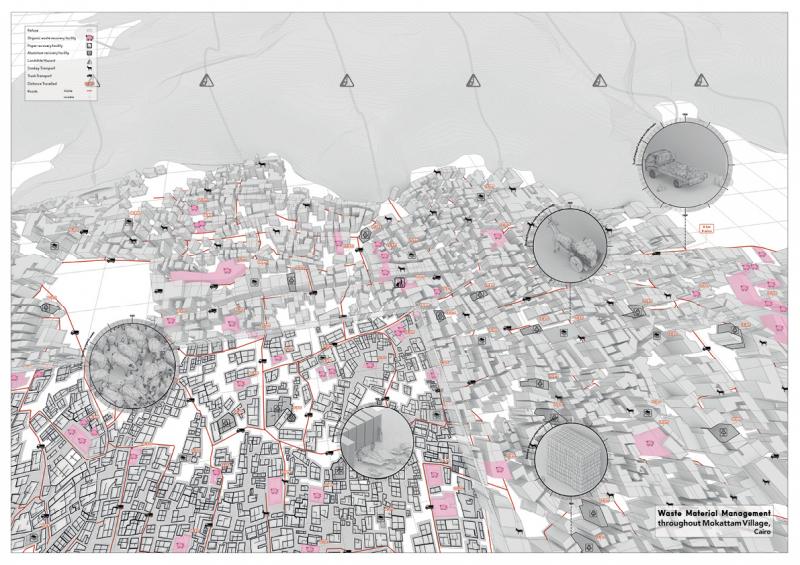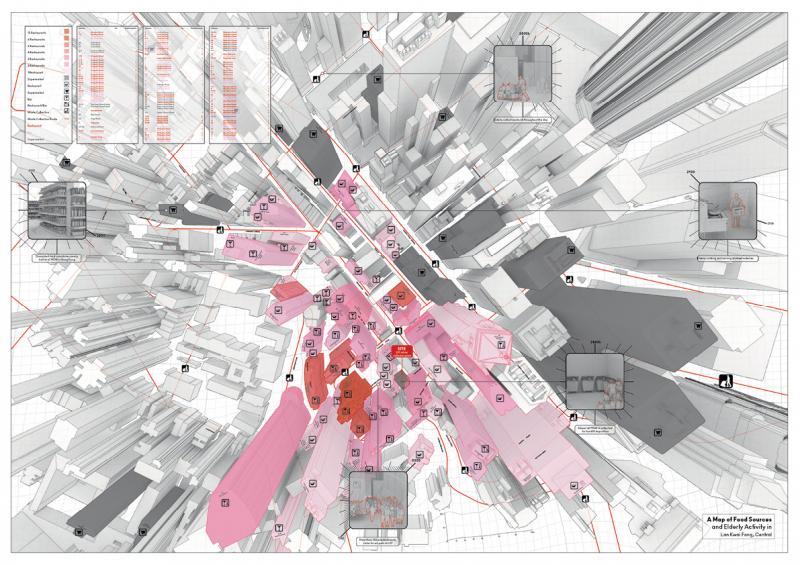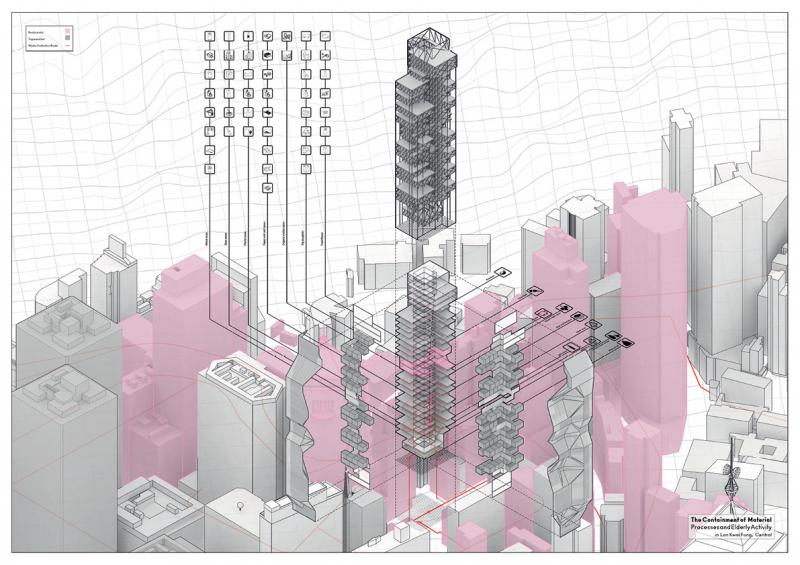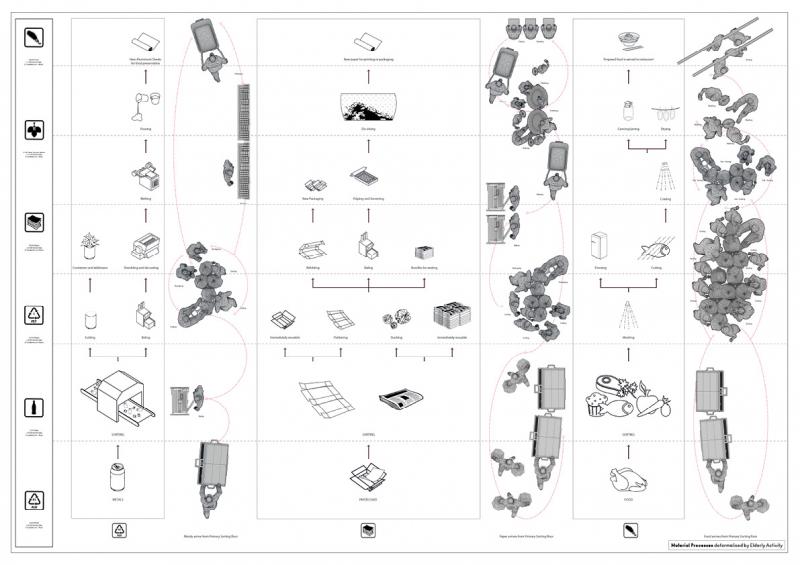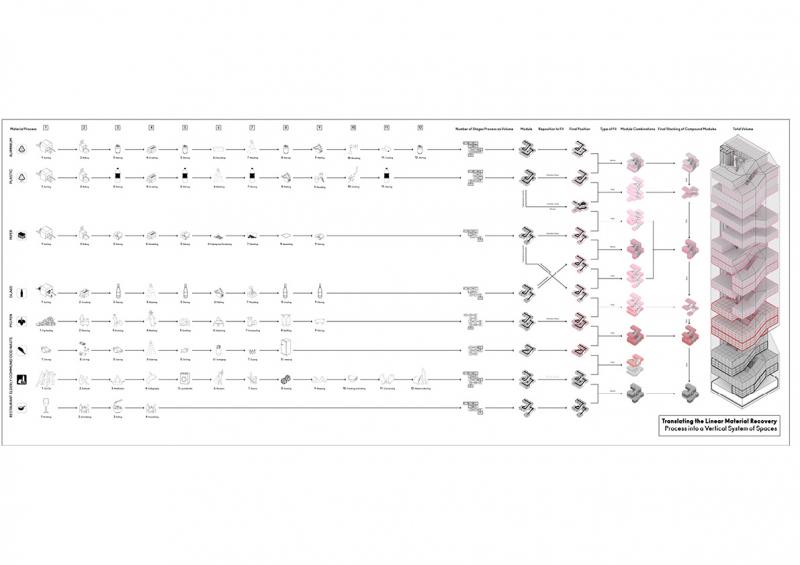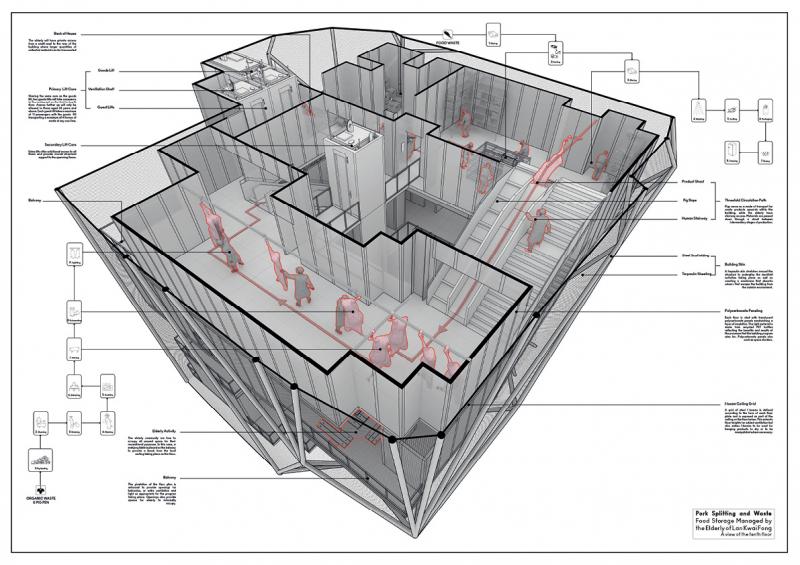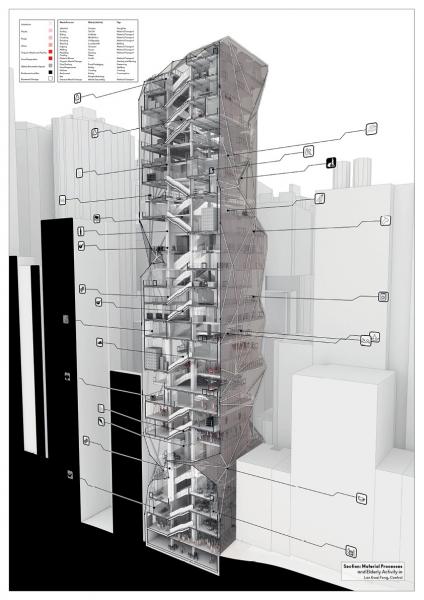Waste Material Dispersion: Routes from Zurich across Switzerland
Switzerland: civilians are required to sort their own waste, where it is taken to a local collection point and then transported to baling facilities and then material recovery facilities, where they can be recycled and remade, mounting high costs and high energy consumption.

